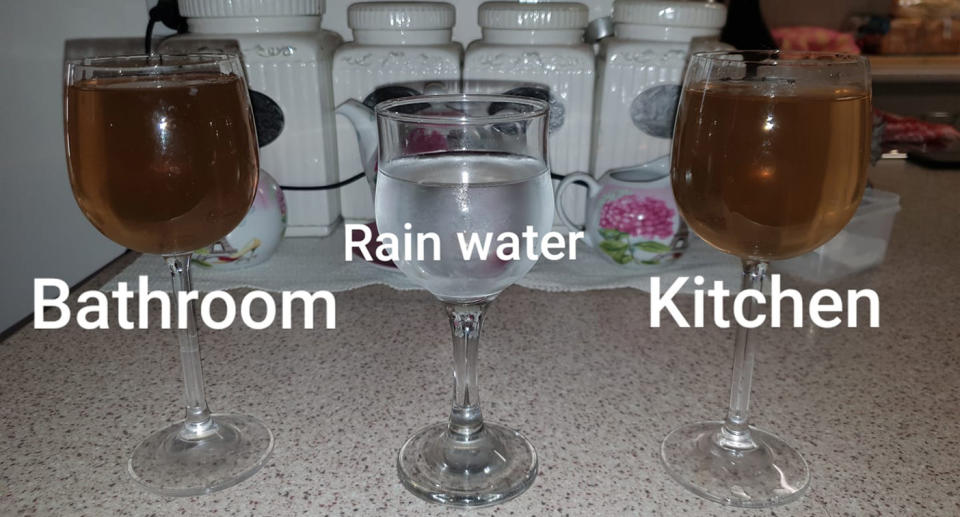‘Absolutely putrid’: Woman's photo shows 'dirty' water coming out of town's taps
A woman has posted a photo of brown, dirty looking water which is coming out of her town’s taps after a mass fish death in a nearby river system.
Taya Biggs of Menindee, far west NSW, posted the image of two wine glasses filled with muggy, brown water from the bathroom and kitchen taps in her home.
“This is the disgusting water coming out of our tap today,” Ms Biggs posted on Facebook on Sunday.
“They expect us to wash, drink, cook and wash our clothes in the filthy water.
“Why should we have to pay for this.

“The smell is absolutely putrid, smells just as bad as those dead fish down the river hopefully something is done soon.”
Social media users were outraged by the filthy looking water.
“My toilet water is black. My bathroom water green,” another local commented on Facebook.
“Spewed in the shower again from stench.”
“That’s terrible,” another Facebook user wrote.
Over one million fish dead
Environmentalists are concerned the amount of water diverted to irrigators from Australia’s third longest river could lead to more mass fish deaths in far western NSW.
Up to one million fish have died in the Darling River system at Menindee, sparking an investigation by the NSW Department of Primary Industries (DPI) and Water NSW.

Golden perch, Murray cod and bony herring are among the species affected.
The DPI said ongoing dry conditions and a recent big temperature drop could have caused the large fish kill.
But University of NSW environmental science expert, Professor Richard Kingsford, believes while the drought has contributed the problem has been a long time coming.
He argues it’s due to the diversion of water for irrigation and extractions from the Menindee Lakes.
“These types of events are likely to become more frequent, given there is a lot of diversion of water for irrigation upstream,” Prof Kingsford told AAP earlier this month.
“The drought would not have as much impact if there was more water in the river and if there was more water in the river, the water quality would be better and the fish probably wouldn’t be as badly affected.”
With AAP


